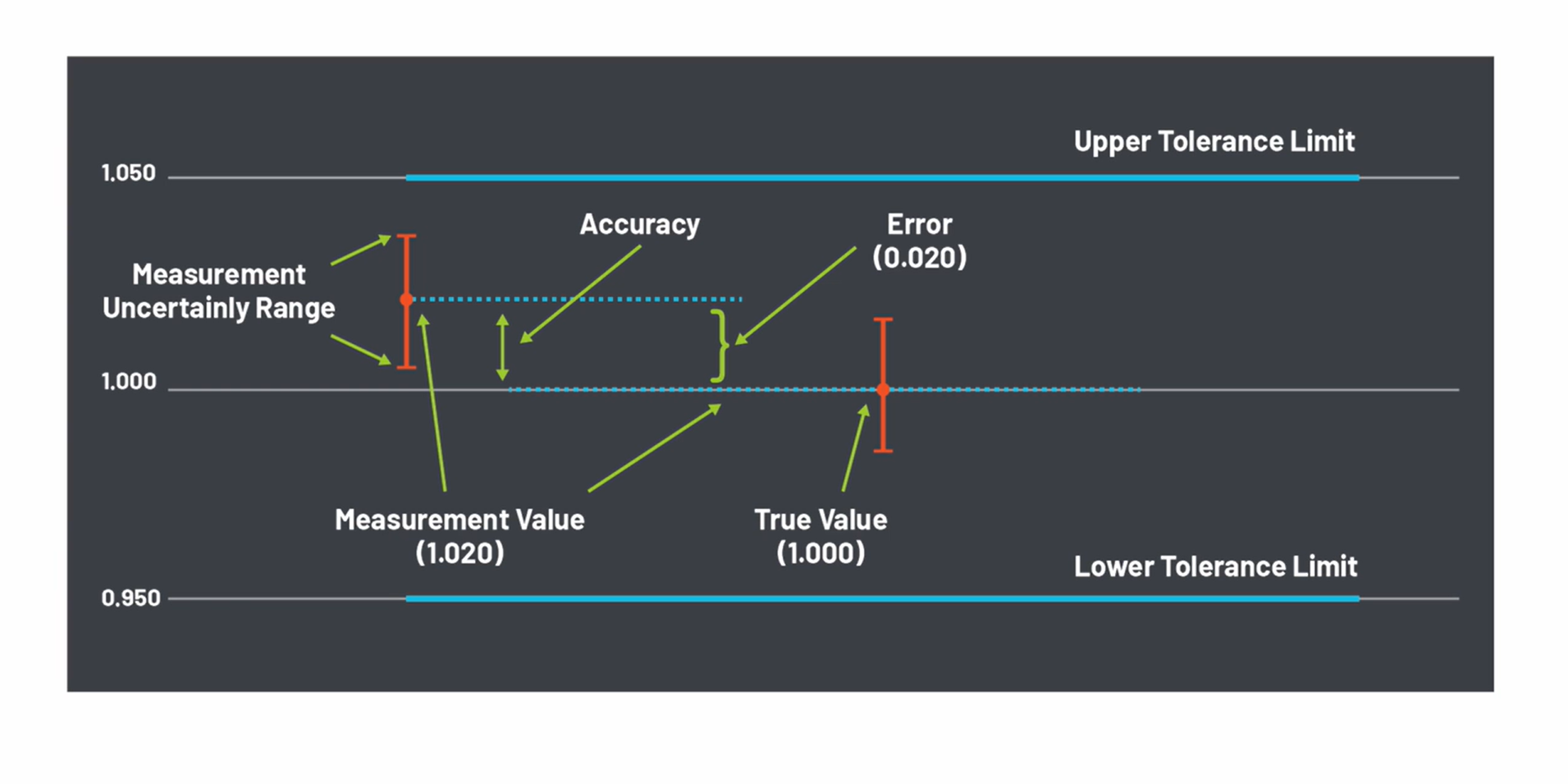

When it comes to calibration and the critical measurements that guide our technological world, understanding the key concepts of accuracy, error, tolerance, and uncertainty is paramount. These terms, often used interchangeably, have distinct meanings that can significantly impact the quality and reliability of your measurements. Let's delve into these concepts with insights from Tektronix, a leader in precision calibration services.
The Foundation of Precision: Accuracy
Accuracy is the cornerstone of reliable measurements. It represents how close a given measurement is to the true value or standard. In the calibration world, achieving high accuracy means your instruments reflect reality as closely as possible. As Mike, Tektronix’s Calibration Service Engineer, indicates, "Accuracy is the target," highlighting its role as the goal every measurement strives to hit.
Identifying the Gap: Error
While striving for accuracy, it's crucial to recognize the role of error. Error is the deviation between a measured value and the true value. It's an inevitable part of any measurement process but understanding and minimizing this error is what sets apart high-quality calibration services. "Error is the gap," Mike notes, emphasizing the need to identify and reduce this difference to enhance measurement reliability.
Setting the Boundaries: Tolerance
Tolerance is about establishing acceptable limits for a measurement. These limits are crucial for determining the usability of a given measurement or product in its intended application. Sarah, Tektronix's Quality Calibration Manager, explains, "Tolerance sets acceptable limits for a measurement," underscoring its importance in defining the range within which a measurement can be considered accurate for practical purposes.
Embracing the Range: Uncertainty
Perhaps the most nuanced concept in calibration is uncertainty. It acknowledges that all measurements have a range of likely values rather than a single definitive number. This range gives us confidence in how reliable a measurement is under specific conditions. "Uncertainty gives us confidence," as Mike beautifully summarizes, pointing out that understanding uncertainty helps in assessing the quality and reliability of measurements.
Conclusion: A Symphony of Precision
In the calibration process, accuracy, error, tolerance, and uncertainty work together like a well-conducted symphony, each playing a critical role in achieving reliable and meaningful results. Understanding these concepts is crucial for anyone relying on precise measurements in their work.
Navigating the World of Precision with Tektronix
Understanding the nuances of accuracy, error, tolerance, and uncertainty is not just about technical compliance; it's about building a foundation of trust in every measurement you make. With Tektronix, clarity and precision are not just promises; they are the essence of every service we provide.
Taking Action
In the pursuit of precision, choosing a partner that understands and can navigate these fundamental concepts is essential. Tektronix offers unmatched expertise and services in calibration, providing clarity and confidence in every measurement. For more information on how Tektronix can elevate the precision of your measurements, visit Tektronix Calibration Services.
Contact Us
Ready to experience the Tektronix difference? Reach out today and take the first step towards unparalleled precision and reliability in your measurements.



